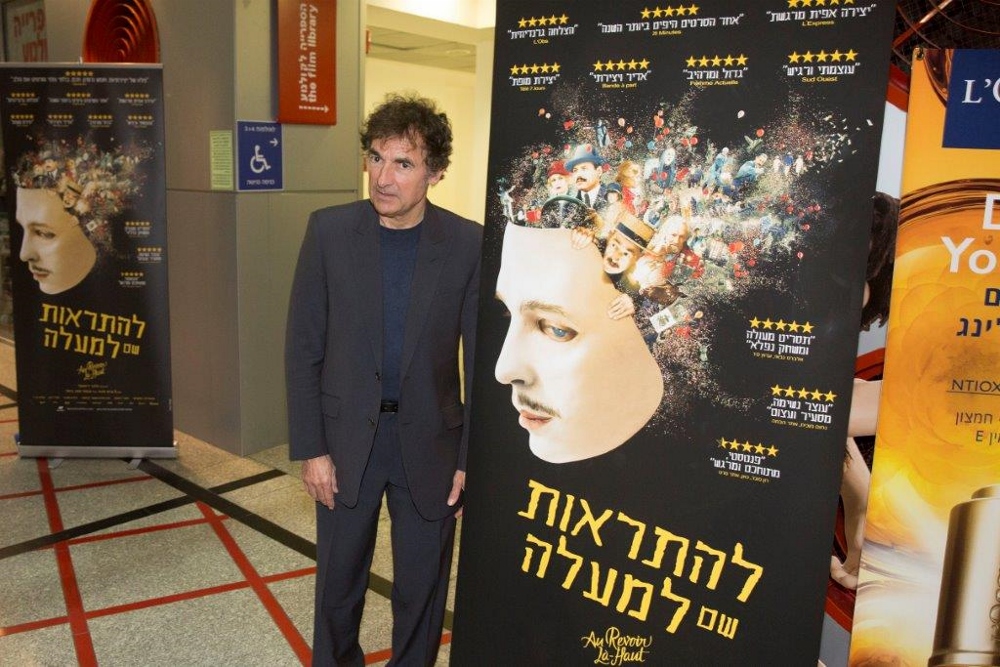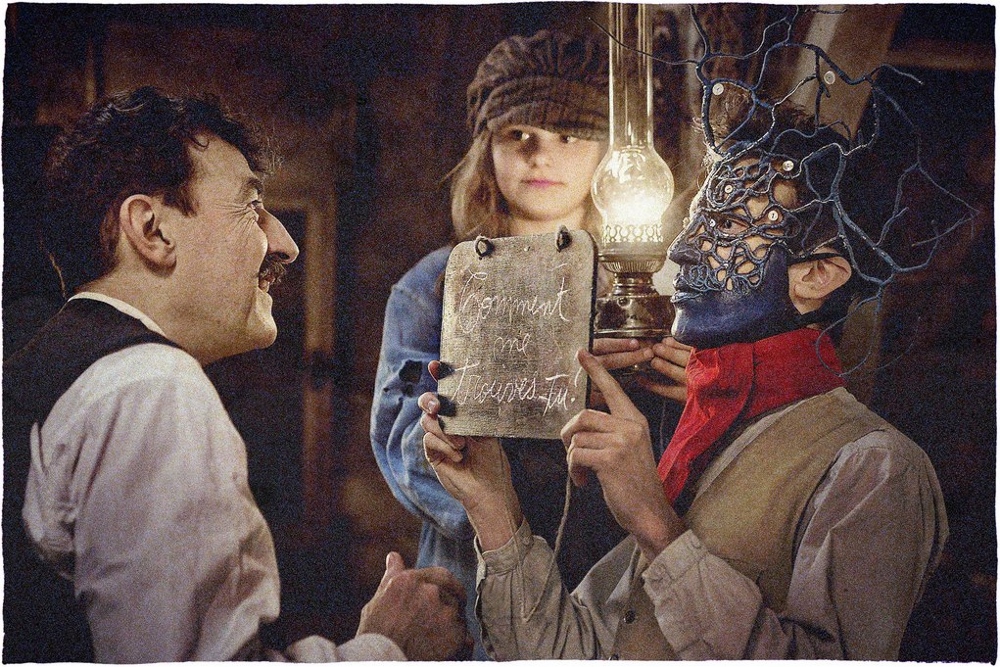See You Up There (Au revoir là-haut), Albert Dupontel’s visually lavish and emotionally striking film opened the 2018 French Film Festival, and will open in Israeli theatres on Thursday, March 22, 2018, distributed by Nachshon Films. Dupontel, who wrote the screenplay, directed, and starred in the film, arrived in Israel for the festival, and met with the press to discuss the film at the French Institute in Tel Aviv.

The film, adapted from the eponymous novel (English title: The Great Swindle) by Pierre Lamaitre, follows the lives and struggles of two unlikely companions, Albert Maillard (Dupontel), a middle-aged middle-class man, and Edouard Pericourt (Perez Biscayart), a talented young man from a wealthy family. The ravages of World War I are depicted in all their horrifying brutality, as the random cruelty of their commanding officer Pradelle (Laurent Lafitte), and the events of the battlefield bind the two men together for life. Estranged from his father Marcel (Niels Arestrup), Pericourt does not return to his family, and relies on Maillard, and his own creative talents, as they struggle to survive in the aftermath of the war. Following the adventures of the two friends and their nemesis Pradelle, the film focuses on the injustices, cruelties, and inequalities of life. Yet despite this depiction of some of life’s bleaker aspects, it is a very lively and vivacious film, full of humor, warmth, and beauty.

Albert Dupontel commented on the extremes of feeling – the laughter and the tears – evoked by the film:
Well, such is life. In my own life I can move from laughter to tears very quickly. I think that to decide ‘I am going to make a drama, therefore there should be no laughter’ limits one’s options. Life is not like that. I have always liked books and movies in which one moves from one to the other. The film needs to resemble life. Sometimes you laugh, sometimes you cry. Like in Chaplin’s comedies. I didn’t decide in advance whether it would be a comedy or a drama, I followed the characters. Pericourt for example, he is funny at times, but the story of the father and son is not amusing at all, and very moving. And that’s life. You let things happen, you let it flow. I know that there are people who say that you need to decide. I personally think that seeing life in black and white limits your understanding; and does not give expression to the full spectrum of emotions from laughter to tears.
Dupontel directs himself in this film, taking on the major role of Maillard. Yet as he explained, this was not his initial plan:
I had an actor for the part, a Belgian actor I admire, Bouli Lanners, but two months before we began shooting he backed out because he was too tired and could not do it. I began to look for a replacement but I realized that I have a serious problem and don’t really have an alternative. The least worst solution was for me to play the part. The truth is that it was difficult, and it was an obstacle to overcome, and it was not planned, and I did not want it to be that way. But it also had positive aspects. The fact that I was also an actor in the film brought me closer to the cast. When the actors see me, not just behind the camera giving directions, but also as they say, rolling up my sleeves and jumping into some very physical scenes and working very hard – it gives them a feeling of trust and desire to do their utmost for the film. The first scene that I filmed as an actor is the dinner scene, in which the character is supposed to cry. And I confess that I really don’t like to do these things. But it was easy for me to cry, I was so exhausted and the tears flowed very easily.
The idea for adapting Lemaitre’s book evolved very organically. Dupontel and Lemaitre work with the same agent, and she gave Dupontel the book before it was published. He read it in two days, but was concerned that the project was too big, and put it aside. Once the book was published and won the prestigious Goncourt, the idea of doing the film came up again, this time, with a more optimistic view to securing the necessary budget for such an artistic period film. In terms of the process, Dupontel said, “I met him (Lemaitre) twice in the entire time, so he was not invasive at all. I wrote the screenplay in three weeks. Not because I’m a genius, but simply because of the way the book is written – everything is there. Scenes, situations, psychological descriptions of the characters. Whenever I wanted to simplify something I always asked the author’s permission.”
According to Dupontel, the main difference between the book and the film is that “the positive things that happen in the film do not exist in the book…I wanted to have some good… and he gave me permission to do things the way I wanted to, with a more sympathetic end.”





